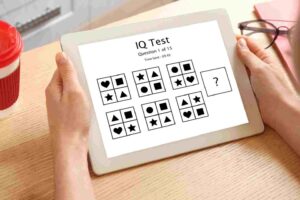Logic testing is a crucial skill highly valued in various fields, such as software development, problem-solving, and critical thinking. It involves analysing and evaluating logical arguments, detecting patterns, and drawing accurate conclusions. If you are an analytical thinker, you are already one step ahead in cracking the code of logic testing. This article will explore what it means to be an analytical thinker and how you can leverage your skills to master logic testing.
What is an analytical thinker?
An analytical thinker excels in breaking down complex problems into smaller, more manageable components. They can think critically, analyze data, and make informed decisions based on evidence and logical reasoning. Analytical thinkers are naturally curious, asking probing questions and seeking a deeper understanding of the world around them. They thrive on solving puzzles, finding patterns, and uncovering hidden connections. If you possess these qualities, you are well on your way to becoming a master of logic testing.
The importance of analytical thinker
Logical testing is of utmost importance in numerous aspects of life. It is a skill that proves invaluable to individuals across various professions and educational pursuits. From the perspective of a software developer, analytical thinking and logic testing are the cornerstones of successfully debugging code. In law enforcement, detectives rely heavily on these skills to crack complex cases and bring perpetrators to justice. Even as a student, logical testing is paramount when preparing for examinations.
The significance of logical testing lies in its ability to help individuals navigate intricate problems and arrive at accurate solutions. Honing this skill can significantly enhance your problem-solving capabilities, sharpen your critical thinking skills, and improve your overall decision-making process. Logical testing empowers you to approach challenges with a structured and systematic approach, increasing your efficiency and effectiveness in tackling them.
The ability to think analytically is valuable in a world becoming increasingly complex and interconnected. It allows you to make sense of the vast information and extract meaningful insights. This not only benefits you personally but also contributes to the overall progress and advancement of society. So, whether you are a software developer, detective, or student, it is clear that logical testing is an indispensable skill that must be mastered.
Common testing methods

Logical testing methods come in a wide range of forms, each with its distinct purpose and approach. These methods are indispensable tools that help us make sense of the world around us and draw accurate conclusions. One such method is deductive reasoning, which relies on facts and general principles to arrive at logical conclusions. With deductive reasoning, you start with a set of known truths or premises and then follow a series of logical steps to arrive at a specific conclusion. It’s like solving a puzzle by connecting the dots using facts.
Another method that comes into play is inductive reasoning. Unlike deductive reasoning, inductive reasoning involves generalising based on specific observations or examples. It’s all about spotting patterns, making observations, and using them to draw broader conclusions. For example, if you observe several instances where a particular event follows a specific cause, you might conclude that there is a causal relationship between the two. Inductive reasoning allows you to piece together individual instances to understand better how things work.
In addition to deductive and inductive reasoning, abductive reasoning is another valuable method used in logical testing. This method best explains a given set of observations or evidence. It’s like being a detective, trying to find the most plausible explanation based on the available clues. Abductive reasoning allows you to generate hypotheses or possible explanations for a given data set and evaluate their likelihood based on the available evidence.
By familiarizing yourself with these logical testing methods, you can better choose the most appropriate approach for a specific scenario. Each method has strengths and weaknesses, and identifying which method to apply in a given situation is crucial for accurate and practical reasoning. So, whether you’re solving complex problems, analyzing data, or making important decisions, a solid understanding of deductive, inductive, and abductive reasoning will undoubtedly enhance your logical testing skills.
How to approach logic testing
Regarding logical reasoning, approaching a testing problem requires a strategic and methodical approach. First, it is crucial to understand the question or problem statement thoroughly. Take your time to carefully read and comprehend the instructions, ensuring you clearly understand what is being asked. As you delve into the problem, break it into smaller components, allowing you to analyze it more effectively.
Look for patterns or relationships within the problem, as this can provide valuable insights. Visual aids, such as diagrams, charts, or tables, can be highly beneficial in helping you visualize the information and identify connections that may not be immediately apparent. As you work through the problem, developing a systematic approach that considers all possible scenarios and outcomes is essential. By carefully considering each possibility, you can ensure that you cover all bases and arrive at the most accurate solution. Remember, even the most complex challenges can be effectively tackled by approaching logic testing with a logical mindset and a strategic plan. So, dive in, take your time, and enjoy the process of unravelling the intricacies of logical reasoning.
Developing logical reasoning skills

Logical reasoning is undoubtedly crucial when it comes to mastering logic testing. To truly enhance your logical reasoning skills, it is highly beneficial to engage in regular practice. One of the most effective ways to do this is by immersing yourself in activities that require critical thinking and problem-solving. Puzzles, riddles, and brain teasers, for instance, can provide the perfect platform for sharpening your logical reasoning abilities. These engaging exercises keep your mind active and train it to think analytically and develop a logical thought process.
However, don’t limit yourself to just solving puzzles and brain teasers. If you truly want to take your logical reasoning skills to the next level, consider studying formal logic and logical fallacies too. Building a solid foundation in the principles of logic can significantly improve your ability to assess and evaluate logical arguments. Understanding the core concepts and recognising common pitfalls can make you more adept at navigating complex reasoning.
So, whether you challenge yourself with brain teasers or delve into the depths of formal logic, the key is to be consistent in your efforts. Regular practice and a thirst for knowledge will undoubtedly lead to great strides in your logical reasoning abilities. Before you know it, you’ll be effortlessly dissecting complex arguments and making sound judgments based on solid reasoning. So, embrace the journey, push your boundaries, and watch your logical reasoning prowess soar to new heights!
Tips and tricks

Here are some tips and tricks to help you master logic testing:
- Practice, practice, practice: By regularly engaging in logic testing, you can gradually become more comfortable and efficient in tackling different problems. To enhance your skills, seeking additional resources that provide ample practice opportunities is beneficial. Consider exploring online platforms, books, or logic puzzles that offer a wide range of exercises to sharpen your logical thinking abilities.
- Break it down: Another helpful strategy is separating complex problems into smaller, more manageable components. This approach allows you to focus on one piece at a time, making identifying patterns or connections within the problem easier. You can better understand the problem structure and develop an effective solving strategy by breaking it down.
- Stay organized: Staying organized is also crucial for mastering logical testing. Visual aids such as diagrams, flowcharts, or tables can be immensely helpful in organizing information and visualizing relationships between different elements. These aids not only assist in keeping track of your thought process and minimize the chances of errors or oversights. Staying organized allows you to navigate logical tests more efficiently and improve your performance. So, embrace the power of practice, break it down into manageable parts, and stay organized to conquer logical testing with confidence and ease.
- Think outside the box: When mastering logical testing, thinking outside the box is crucial. Logic testing often goes beyond conventional approaches, requiring you to explore different angles and consider unconventional solutions. By doing so, you can uncover hidden patterns and discover the correct answers that may not be immediately apparent.
- Collaborate and discuss: Group discussions and online forums are excellent platforms for exchanging ideas and perspectives. By interacting with like-minded individuals, you can gain new insights and broaden your understanding of logical testing techniques. Sharing your experiences and learning from others’ approaches can profoundly impact your logical testing abilities. Engaging in meaningful discussions allows you to tap into the collective wisdom and benefit from diverse perspectives. Don’t be afraid to contribute your insights and challenge others’ thinking. A collaborative environment can foster growth and improvement in logical testing.
Resources for further practice and learning
A wealth of resources is available to enhance your logic testing skills further. Online platforms like Khan Academy, Coursera, and edX offer logic and critical thinking courses. Books like “Logic: A Very Short Introduction” by Graham Priest and “The Power of Logical Thinking” by Marilyn Vos Savant provide comprehensive insights into logical reasoning. Additionally, websites like Puzzle Baron and Brilliant.org offer a wide range of logic puzzles and challenges to put your skills to the test. With these resources, you can continuously improve your logic testing abilities.
Career Opportunities for analytical thinkers

Mastering logic testing opens up a world of career opportunities. Many industries, including software development, data analysis, and quality assurance, rely heavily on individuals who can effectively identify and resolve logical inconsistencies. You become an invaluable asset to employers seeking analytical thinkers by showcasing your logical reasoning skills. Moreover, logic testing skills are transferable, allowing you to excel in various fields and adapt to evolving job markets. So, whether you aspire to be a software tester, a problem-solving consultant, or a data analyst, mastering logic testing can pave the way to a fulfilling career.
Conclusion
Logic testing is an essential skill that analytical thinkers can master with practice and dedication. You can become a proficient logic tester by understanding the fundamentals of logic testing, developing logical reasoning skills, and utilizing tips and tricks. Analyzing complex problems, detecting patterns, and drawing accurate conclusions are valuable in various fields and can lead to exciting career opportunities. So, embrace your analytical mindset, crack the code of logic testing, and unlock your full potential as an analytical thinker. Start your journey today and see where logic testing takes you!
